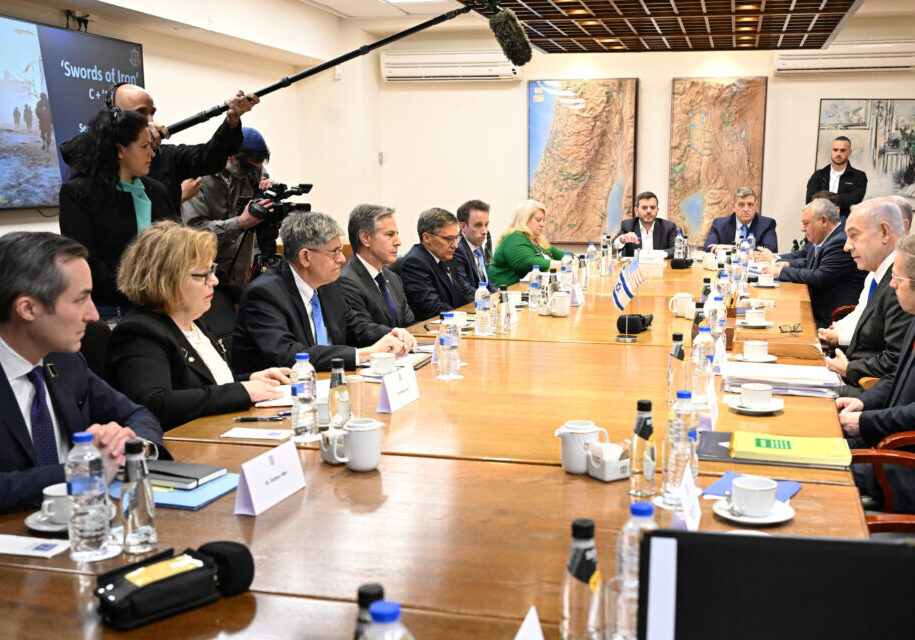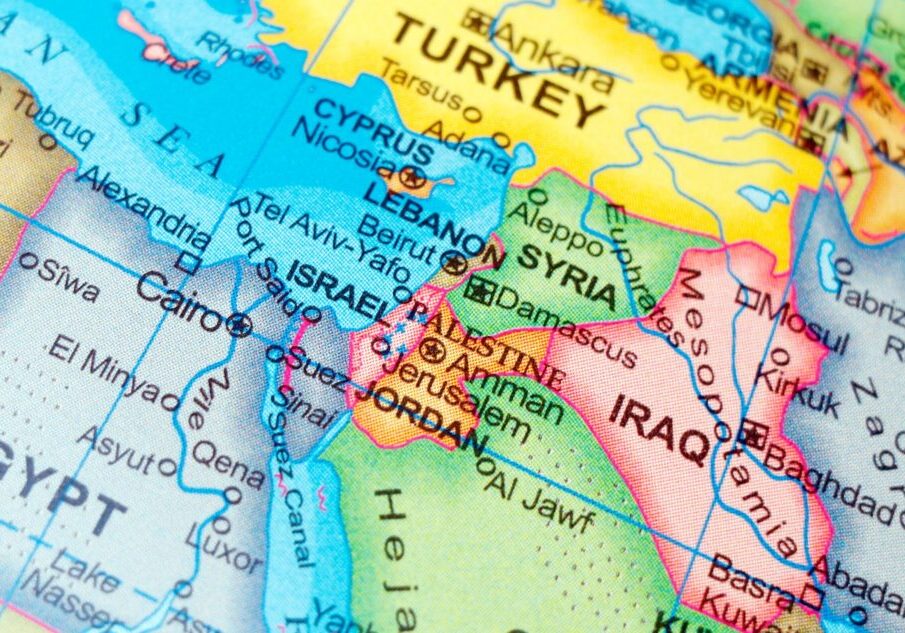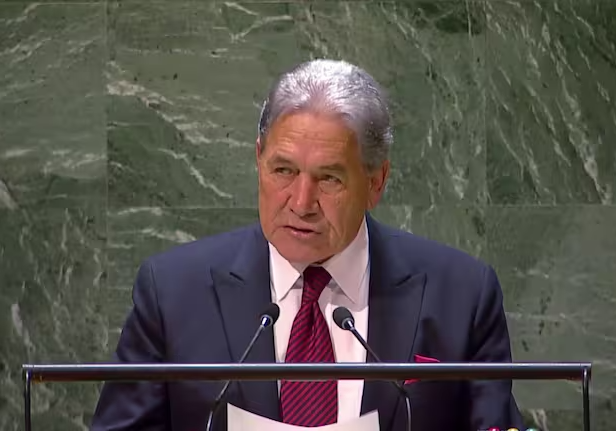Australia/Israel Review
Is Syria Serious?
Sep 1, 2007 | Yehonathan Tommer
Experts discuss the prospects of Israeli-Syrian talks
By Yehonathan Tommer
 |
| Assad: Offering peace talks; threatening war |
Since last year, Syria has been offering mixed signals to Israel. While publicly declaring a readiness to resume peace negotiations, and occasionally stating it would be prepared to do so without pre-conditions, the regime of President Bashar al-Assad has also stepped up its threats of war. The regime has repeatedly stated its intention to take back the Golan Heights, captured by Israel from Syria in 1967, via “resistance” if Israel does not hand them over via negotiations. Moreover, these threats have been accompanied by a military build-up that has alarmed Israeli security experts.
Since that time, there has been an ongoing debate in Israel about whether Syrian overtures for negotiations are serious and worth exploring or merely represent attempts by the Assad regime to deflect international pressure, especially in terms of UN plans for an international court to try the murderers of Lebanon’s former Prime Minister Rafiq Hariri, assassinated in 2005. Senior figures in Damascus are widely expected to be targeted for prosecution in that process.
It has been reported that the Israeli government has sent messages to Syria, requesting a demonstration of seriousness in the form of curbing of Damascus’ patronage for Hamas and Hezbollah. In June, Israeli PM Ehud Olmert reportedly sent a secret message to Assad, stating that Israel would return the Golan in exchange for a comprehensive peace agreement and the severing of Damascus’ alliance with Iran and terror groups in the region.
Advocates of engagement argue that if there is any chance that Syria can be weaned away from its current close alliance with Iran, this would have dramatic strategic effects for the region, and must be explored. Sceptics argue that this is highly unlikely, and that Assad’s inauguration speech in July, where he seemed to place new, and for Israel, impossible, pre-conditions on any talks, shows he never wanted an agreement.
AIR spoke to six Syria specialists to appraise both the prospects for Israel-Syrian peace negotiations, and the concerns about Syria’s repeated brandishing of the option of violent “resistance.”
Eyal Zisser: Syria “not hungry for peace”
Dr. Eyal Zisser, a Syria specialist at Tel Aviv University’s Moshe Dayan Centre for Middle East and African Studies, argues that negotiations with Damascus give Israel “an opportunity to sever Syria from its 30 year ties with Iran,” whose declarations to annihilate Israel and acquire a nuclear capability “threaten Israel’s physical existence”.
But he concedes, “This is unlikely to happen. With the prime minister struggling to survive, Olmert cannot withdraw from the Golan Heights without endangering his coalition’s stability…The Syrians are not hungry for peace or making efforts to advance negotiations beyond issuing non-committal declarations. They reject all ideas of land lease for Israeli settlers, demilitarised zones and electronic border surveillance. Also, I don’t see how Israel can persuade Syria to renounce [its demand for] a total Israeli withdrawal from the Golan Heights…
“The Turks could play a mediating role, but have no clout with either party. The Americans are totally opposed to including Syria now, or at a later date in the regional meeting because of its axis with Iran. Negotiations between Israel and Syria will have to wait until after the Bush era ends and a new president takes office.”
Barry Rubin: The Assad Regime cannot survive the return of the Golan
Prof. Barry Rubin, director of the GLORIA centre at the Interdisciplinary University in Herzliya, and author of a new book on Syria, The Truth about Syria (Palgrave MacMillian, 2007), does not see any opportunity for real progress, and argues that the Syrian regime does not in fact want the Golan returned.
He says the Israeli government has already explored, through private contacts, whether there was any prospect of progress toward comprehensive peace: “Prime Minister Olmert said they looked into it. And they concluded there was nothing to it. He’s said this publicly and he’s also told this to people privately…It’s a factual finding – they came to the conclusion that the Syrians were not matching in private the rhetoric they [were putting forward] in public, and they weren’t putting forward anything that could conceivably lead to any talks.”
But he also argues that, analytically, he does not believe the regime can survive a peace deal with Israel involving the return of the Golan Heights; “It’s my view that [the Syrian leadership] really don’t want to get the Golan back because if they got it back, and they have peace with Israel and peace with the US, then the regime wouldn’t have a rationale anymore. ‘Okay, war’s over, there’s no external threat, let’s have democracy, let’s have a free market economy, let’s have an end to corruption, let’s have an end to high military spending,’ and all these things would be the beginning of the end of the regime. So, structurally, I don’t think they want to get the Golan back. I think they need the issue for demagogic purposes to stay in power.”
Itamar Rabinovich: Assad offers peace but prepares for war
Israel-Syrian relations today are “worrisome”, says Tel Aviv University’s Prof. Itamar Rabinovich, the former head of Israel’s negotiating team with Syria. President Bashar al-Assad offers to speak peace but is preparing for war, like Egyptian President Anwar Sadat between 1971-73, before the Yom Kippur War. “Assad offered peace before the Second Lebanese war but has hardened his stand since. His war threats, encouraged by the outcomes of the war, have grown and strengthened.” Writing in Haaretz in July, Rabinovich said “it would nevertheless be prudent and correct for Israel to probe Assad’s intentions and not to corner Syria with reactions showing a toughened [Israeli] stand.”
US President Bush, says Rabinovich, is angry at Syria’s logistical assistance to the Sunni revolt against American forces in Iraq and has been progressing since 2005 from efforts to overthrow Assad’s regime, then to isolate him diplomatically and recently to allow quiet talks without Washington’s participation.
“Many Americans and Israelis believe Assad has no intention of making peace with Israel but wishes to negotiate for the sake of negotiations.” Meanwhile, Syria seeks to improve its military capability vis-á-vis Israel and to replace outdated Soviet-supplied equipment with modern Iranian-funded Russian arms after Saudi Arabia and the Gulf States withdrew their financial aid.
“Syria is less flexible than it was six years ago when negotiations were broken off by then-Prime Minister Ehud Barak. It demands prior Israeli guarantees to concede all of the Golan Heights captured in June 1967. It also has the ability to disrupt Palestinian-Israeli negotiations.” Rabinovich believes that Israel should propose secret talks to find out if there are grounds for negotiating a comprehensive package to include Syria’s relationship with Teheran and Hezbollah. Meanwhile, “vital steps should be taken to rehabilitate Israel’s deterrent capability vis-á-vis Syria to buttress its diplomatic position.”
Mordechai Kedar: Syria believes it can recover the Golan through military attrition
Mordechai Kedar at Bar Ilan University’s Begin-Sadat Centre for Strategic Studies (BESA) believes that the lessons drawn from last year’s war in Lebanon have persuaded Syria that it can recover the Golan Heights through terrorist insurgency and a war of attrition waged by missiles targeting Israel’s vulnerable civilian population.
“With this world view, Syrian talk about a peaceful solution starts with a full Israeli withdrawal from the Golan Heights and the repatriation of some 750,000 Palestinian refugees living in Syria and Lebanon to Israel inside the 1948 borders. The Syrians listen to Israeli voices calling upon the government to give up the Golan for a peace agreement with Syria. They believe Olmert’s government is weak and understands Syria’s abilities and options, that the world media will not tolerate Israeli military retaliation and that Israel will accede almost to whatever the Syrians demand.”
Kedar is highly sceptical of efforts to pry Syria from Iran. “Their 30-year relationship is steady regardless of what happens between Israel and Syria. It can end only if Syria exchanges its Russian-Iranian orientation for a Western coalition, like Anwar Sadat’s Egypt did in the mid-1970s. Peace with Israel will be the result of that changed orientation and only constant pressure to isolate Syria will bring that change.”
David Schenker: Syrian peace overtures “suspect” and “manipulative”
David Schenker, a senior fellow at the Washington Institute for Near East Policy, and former US State Department official specialising in Syria, said in an email interview that there are no Syrian constraints on direct high level meetings with Israel. “It’s only a matter of motivation and timing.” They want a prior commitment for a full Israeli withdrawal from the Golan, as well as American involvement to repair their relations with the US and to end Syria’s international pariah status.
But Syrian peace overtures are suspect, says Schenker. “Peace trial balloons have periodically floated out of Damascus when it has been under maximum pressure over UN investigation reports into Syria’s implication in the assassination of former Lebanese PM Hariri.”
Iran and Syria have been strategic partners for 30 years. “This will not change and no US carrots can pry them apart,” says Schenker. “A Syrian-Israeli peace is one of several US priorities in the region… Even if achieved… Washington would be a fickle friend and Assad would be loathe to jeopardise his ties with Iran.”
More than that, if Assad’s minority regime were to regain the occupied Golan, “it would forfeit its raison d’être and be unable to continue repressing the Syrian people,” says Schenker.
America will not block any Arab state which seriously wants to engage in peace negotiations with Israel, but President Bush is not inviting Syria to the regional meeting in November because Damascus has been “unhelpful on a broad range of policies, mostly involving the destabilisation of Iraq, Lebanon and the Palestinian Authority,” says Schenker. “Secretary [of State Condoleezza] Rice engaged extensively with Damascus between 2002-2005 and recently tried to enlist Syrian assistance on Iraq, also apparently to no avail.”
Israel is not missing any opportunity by not rushing into negotiations with Syria, he said. “The most prudent thing to do is to wait for the international tribunal (on the Hariri murder) to complete its work. Why throw him [Assad] a lifeline now? It would be like Oslo déja vu – rehabilitating Arafat who was irrelevant, following his unwavering support for Saddam’s invasion of Kuwait.”
Moshe Maoz: Syria at a crossroads between war and peace
Hebrew University’s Professor Moshe Maoz says that both sides missed an opportunity seven years ago when Hafez al-Assad, Bashar’s father, was ready to accept practical arrangements on the Golan Heights. Circumstances have changed since 9/11 and the American war on terrorism and President Bush sees Bashar Assad’s participation in the ‘axis of evil’ as a stumbling block. All Israeli prime ministers including Binyamin Netanyahu and Ariel Sharon have been willing to relinquish the Golan Heights for a settlement with Syria. Yet close to 70% of Israeli Jews oppose a withdrawal from the Golan Heights and views are divided in Israel’s military-security establishment.
Syria, Israel and the US share interlocking regional interests, says Maoz. Israel needs a settlement with Syria to curb the flow of arms to Hezbollah in Lebanon. Syria can also pressure Hamas to permanently resettle 350,000 Palestinian refugees in Syria and a similar number in Lebanon.
“Syria is at a crossroads,” says Maoz. “With Iran it can go to war. With the US it can turn to peace. The question is whether Bashar Assad is capable of and interested in disengaging Syria from Iran and what price Washington is ready to pay. The situation could worsen waiting for a new president in the White House.”
Israeli Foreign Ministry spokesperson Mark Regev: Syria wants “talks about talks”
Asked to comment, Israel Foreign Ministry spokesman Mark Regev told AIR; “Prime Minister Olmert is willing to conduct direct talks with Syria at a time and a place of their choosing. It’s the Syrians who are excluding themselves. Damascus is the only Arab capital willing to host [Iranian President] Ahmadinejad; the only Arab capital with a strategic relationship with Iran and strategic cooperation with groups like Hamas, Hezbollah, Islamic Jihad. I can’t see how they can be included in a regional meeting of people and governments who support peace negotiations.”
The Syrians want to play the Israel peace card to improve their diplomatic standing internationally and to get the European Union off their backs on the Lebanon issue, Regev added. “We can’t let them manipulate the situation… Unfortunately, the analysis is that they’re ready to talk about talks. We can have diplomatic meetings and play games until tomorrow. But if we want to overcome problems and gaps, we have to start talks directly.”
![]()
Jamie Hyams and Tzvi Fleischer contributed to this report.
Tags: Israel






